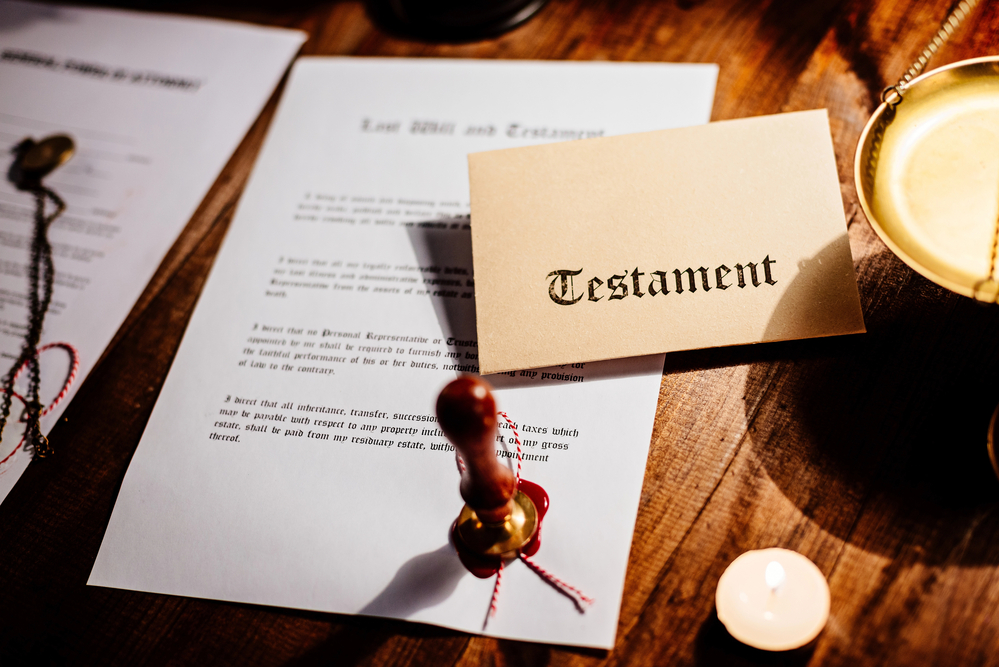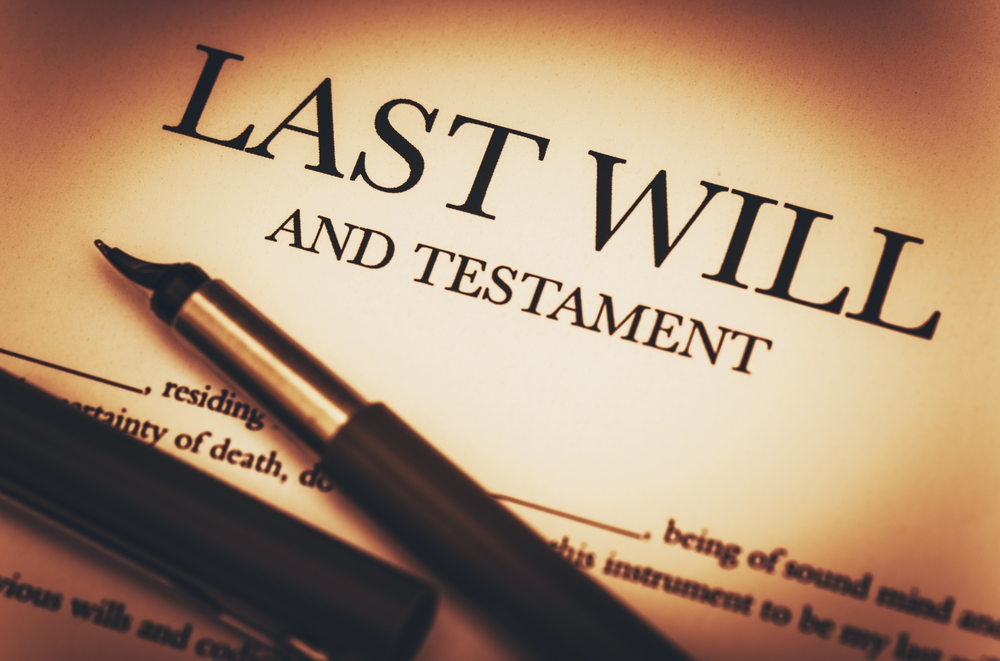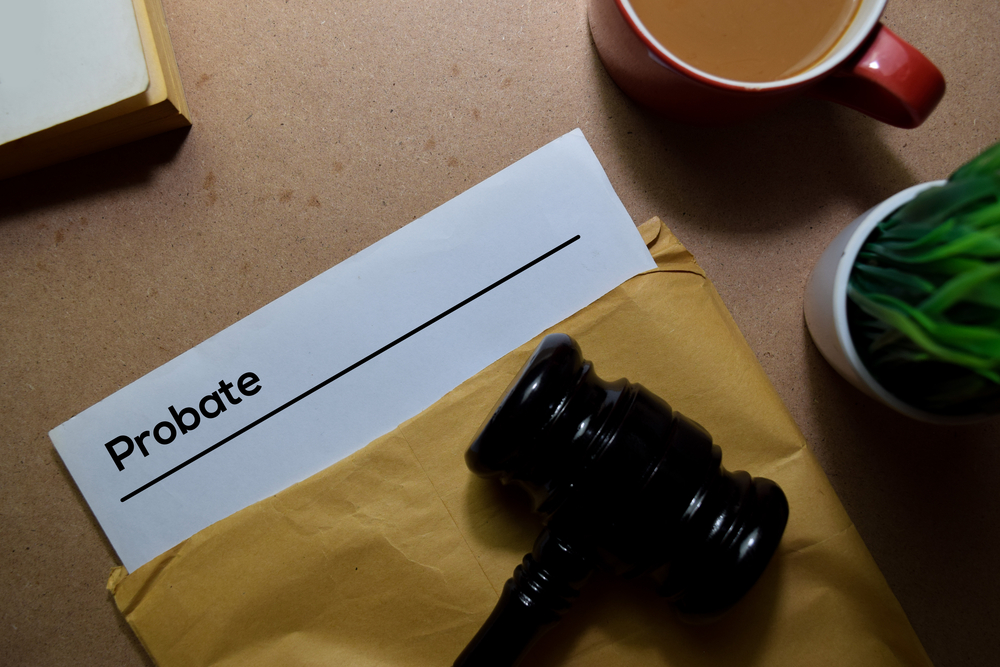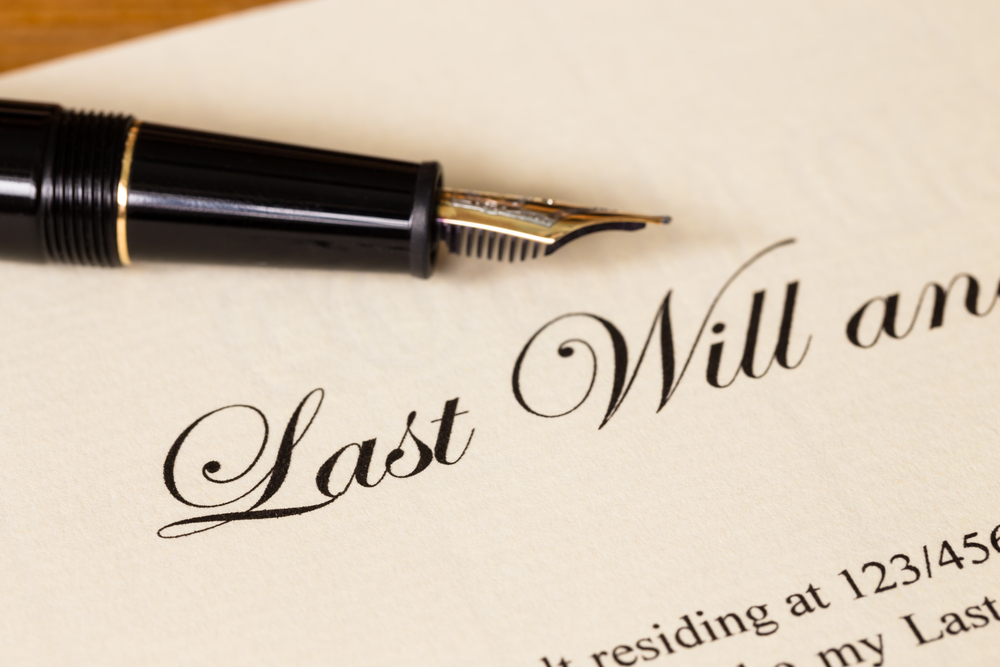How to Handle an Estate Without a Will in New York
When someone dies in Queens, NY, their assets are distributed according to their Last Will and Testament. But, what happens if the deceased didn’t make a will before they passed away? Who inherits the person’s property and money? Your experienced estate lawyer is here to guide you through the process of what happens when someone dies intestate.
From Your Local Estate Lawyer: Handling an Estate Without a Will in Queens, NY
When someone passes away without leaving a will, they died intestate. Without instructions as to who should receive what from the estate, the distribution of assets follows New York’s intestate succession laws.

Probate proceedings in Queens, NY are often straightforward, with assets being distributed as per the deceased person’s Last Will and Testament. However, things don’t always run smoothly and disputes can arise between family members or beneficiaries regarding the will’s validity. When a will is contested, there are eight steps proceedings will take. As experienced wills contest lawyers, Joseph N. Yamaner and Associates is here to guide you through the process.
Ask a Wills Contest Lawyer: Eight Steps for Contesting a Will in Queens, NY
1. Standing
A person must first have legal standing to contest a will in Queens. In other words, only someone with a direct interest in the outcome of proceedings can challenge the document’s validity, including:
- Beneficiaries named in the will
- Family members who would inherit under intestate succession laws
- Creditors of the deceased
If unsure of your legal standing, always consult a will contest attorney to help determine your eligibility for a claim.

Can a Probate Attorney Help Reduce Estate Taxes?
Losing a loved one is a deeply emotional time, and on top of that, the complexities of probate and dealing with the tax implications on an estate are a real burden. Finding a knowledgeable probate attorney in Queens can be a tremendous help in navigating the probate process and finding legal strategies to help minimize the estate’s tax burden.
Can a Probate Attorney in Queens Help Reduce Estate Taxes?
New York imposes its own estate tax in addition to the federal estate tax, and the New York estate tax exemption is currently much lower than the federal exemption, making careful planning especially critical for New York residents. An experienced probate attorney understands the various deductions, exemptions, and complex state and federal tax laws, which enables them to structure an estate plan that makes the most of your allowable exemptions.

Estate planning is essential to ensure your final wishes are carried out, but it can also be complicated and confusing if you’re not familiar with its many facets. Hiring an estate planning attorney can be extremely helpful during this process. One fundamental component of estate planning is the probate process and, specifically, the question how much does an estate have to be worth to go into probate?
How Much Does an Estate Have To Be Worth To Go Into Probate?
In New York, any estate valued over $50,000 must go through formal probate. Those estates with less than $50,000 in assets are considered “small estates” and can be handled through voluntary administration, not formal probate. This threshold includes personal property such as bank accounts, insurance policies, and investment accounts. Jointly owned bank accounts where the co-owner survives may not count toward the threshold.

What Is Probate Court in New York?
Losing a loved one is a deeply personal and emotionally draining experience. In the midst of the grief, however, there are still legal and administrative responsibilities that have to be dealt with, so you may be asking what is probate court? If you find yourself facing this question in New York State, keep reading to learn more about the role of the probate court and how a probate lawyer can help you here.
What Is Probate Court in New York?
In New York, the probate court is formally known as the Surrogate’s Court, and it’s a specialized court system focused on matters pertaining to the estates of individuals who have passed on. Think of it as a special forum dedicated to ensuring that a deceased person’s final wishes are respected and their assets are distributed according to the law.

What Is a Probate Lawyer?
The loss of a loved one is a deeply personal and emotional experience. In the midst of the grief, however, there are, unfortunately, legal and administrative responsibilities that must be addressed: but a probate lawyer can help. What is a probate lawyer? Probate lawyers specialize in guiding families through the legal and administrative procedures involved in settling the estate of a deceased love one.
What Is a Probate Lawyer?
A probate lawyer’s responsibility generally is to guide you through the probate process. From filing the will to notifying all heirs and creditors, a probate lawyer makes sure that every step is taken correctly and efficiently. They are also skilled at interpreting Wills and New York laws, and explaining how the two interact. They can decipher the legal language of the Will and advise you on its implications, so you can both understand it and keep to any required terms.
But probate lawyers can also manage estate assets, assisting the executor of the estate with tasks like locating and inventorying assets, paying debts, and handling financial transactions related to the estate. If disagreements arise among beneficiaries or challenges to the Will are presented, a probate lawyer can help in court and advocate for your position.
Perhaps most importantly, a probate lawyer offers empathy and understanding because they understand what a difficult time clients are going through after the death of a loved one. Their job is to shoulder much of the burden and guide you through the legal process with compassion.

What Is Estate Planning?
You may think of estate planning as something that only extremely wealthy people need to worry about, but no matter the monetary value of your current assets, you have an estate. That might include real estate, bank accounts, investments, vehicles, and other personal property that you want to pass on. If you’re asking yourself what is estate planning, you’re already on your way to ensuring your personal property and assets are taken care of appropriately after your death. A good next step would be to contact a estate planning lawyer for legal guidance during the process.
What Is Estate Planning?
Estate planning is the process by which you decide how your personal property and assets will be handled upon your passing or if you become incapacitated. It can also include instructions for healthcare should you become incapacitated or terminally ill. An estate plan may include legal documents like your will, trust, durable power of attorney, healthcare proxy, and living will.
You’ll want to work with an estate planning attorney to make sure your end-of-life plans are arranged and executed according to New York’s Estates, Powers, & Trusts law. Your attorney can help you put everything into place so that your healthcare and fiduciary plans can be executed as you wish, giving you and your loved ones peace of mind about the future.

The Importance of Estate Planning in Queens, NY
Why is estate planning important? Estate planning brings clarity and peace of mind for you and your loved ones. It’s about ensuring your wishes are met after your death, your loved ones are protected, and your legacy is preserved. Here’s why hiring an estate planning attorney and having an estate plan is crucial, no matter your age or wealth.
Why Is Estate Planning Important?
Taking Control of Your Legacy
Imagine your prized guitar passed down to someone who wouldn’t appreciate its melody, or your cherished family recipes lost to strangers. Without an estate plan, the state dictates who inherits everything you have: and they may not do what you wish.
Estate planning means you name your beneficiaries, ensuring your treasured heirlooms reach the right hands. You can also specify distributions of your finances, giving each loved one what you deem appropriate. It’s your story and your legacy, and an estate plan lets you write the final chapter.

What Is an Estate Planning Attorney?
When you start preparing for the future, you may find yourself thinking, what is an estate planning attorney? Do I need one? A common misperception is that estate planning is only for those who are retired or extremely wealthy, but that’s not the case; nearly everyone has an estate. If you want to make sure your property and assets are treated according to your wishes after your death, you’ll want to plan your estate.
What Does Estate Planning Include?
Planning your estate can give you and your loved ones peace of mind by ensuring that your healthcare wishes and financial plans are followed upon your passing or in case you’re unable to take care of yourself. What’s included in your estate planning process will depend on your needs, but will typically cover at least two major areas: healthcare planning and asset management.
Healthcare and Family Planning
Through estate planning, you can express your healthcare wishes should you become incapacitated, as well as how you want your healthcare handled as you near the end of your life. If you have dependents, an experienced attorney can help you understand your options for establishing legal guardianship should the need arise.
Property and Asset Management
A proper estate plan will determine what should be done with your property and assets upon your death or incapacitation. That might included naming who has durable power of attorney if you can’t make your own financial decisions. It will also include the distribution of your real estate, financial assets, and personal property to your loved ones or charity via your Will and/or a trust.

Understanding the Executor’s Role in Estate Planning
Strategizing for the future often includes estate planning to ensure your final wishes are carried out. As you think through your preparations, the crucial question, “What is the role of an executor in estate planning?” can be answered by an estate planning lawyer.
What Is the Role of an Executor in Estate Planning?
An estate executor’s role is to finalize a person’s finances and ensure the decedent’s wishes are carried out. The executor, sometimes called a personal representative, has a fiduciary duty to follow the directions of the will, including distributing money and assets to designated beneficiaries. Often times, the appointed executor is also a named heir, but they must act solely on the estate’s best interest.
Responsibilities
One of the first steps of an executor is to inventory all the estate’s assets and debts. Next, the executor will notify appropriate parties of the death. This can include:
- Family
- Friends
- Employers
- Credit card companies
- Social Security Administration
- Banks
- Other lenders
Executors are also responsible for managing the daily affairs of an estate, notifying beneficiaries of a pending inheritance, paying off or negotiating outstanding debts, and filing all final taxes. Finally, the executor will distribute all remaining assets as outlined in the will and eventually close the estate.

Does an Executor Receive Compensation?
Because the process can be cumbersome and time-consuming, executors can receive compensation for their efforts. The paid fee is a percentage of the entire estate and varies depending on the value of the total assets. Certain assets are legally excluded from being considered when computing total compensation.
Beneficiaries are allowed to ask for and receive an accounting of the estate, including bank statements from which the executor is being paid. This acts as a system of checks and balances.
Traits of a Great Executor
Anyone, or sometimes multiple people, can be named an executor of someone’s estate. Often, people will designate their children or siblings to co-execute their will. Successful executors will possess positive traits like being:
- Responsible
- Financially stable
- Detail oriented
- Patient
- Trustworthy
- Calm
It’s important to know there are requirements in New York State that must be met to have your nominated executor approved. An executor must be at least 18 years old, have no felony record, and be of sound mind. An out-of-state executor is allowed to be named in New York.
What If an Executor Isn’t Named?
If the decedent hasn’t named an executor, a court will choose on behalf of the estate. This decision is made, in order, from the list of surviving next of kin:
- Spouse
- Children
- Grandchildren
- Parent
- Siblings
Choosing your own executor is the best way to ensure your estate planning is carried out exactly the way you envision.
Next Steps
No matter what stage of the estate planning process you’re in, getting the right legal advice from an experienced estate planning and probate administration attorney will help you make informed decisions so your final wishes and goals are accomplished the way you intend them to be. Contact the law offices of Joseph N. Yamaner and Associates in Queens, NY for personalized solutions to all your estate planning needs.

